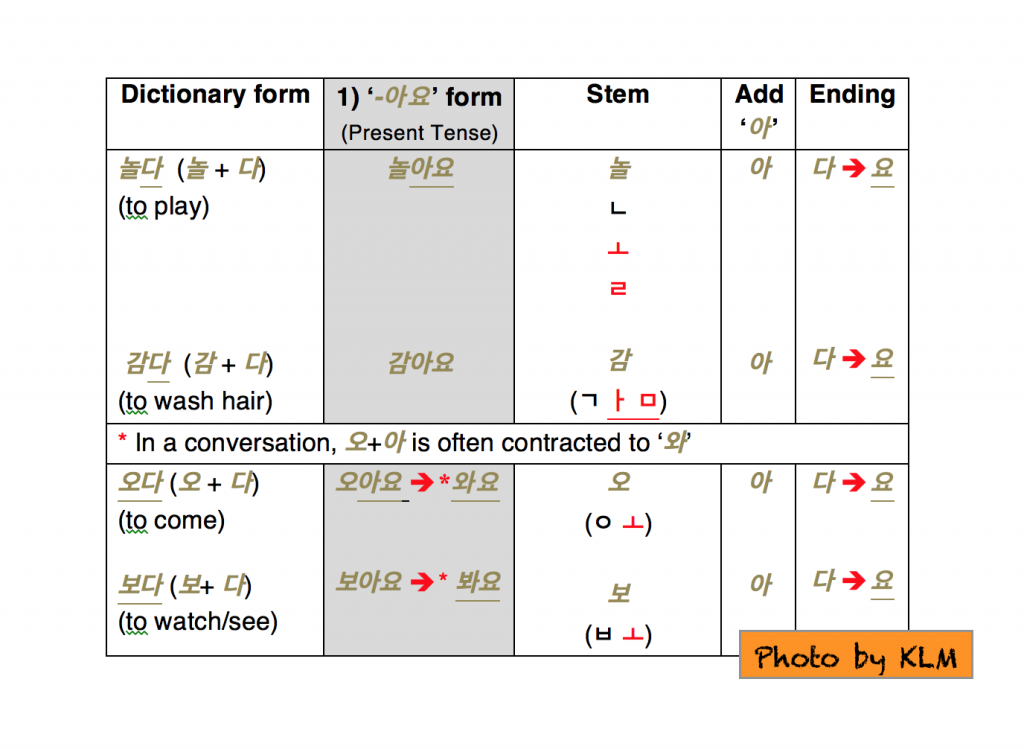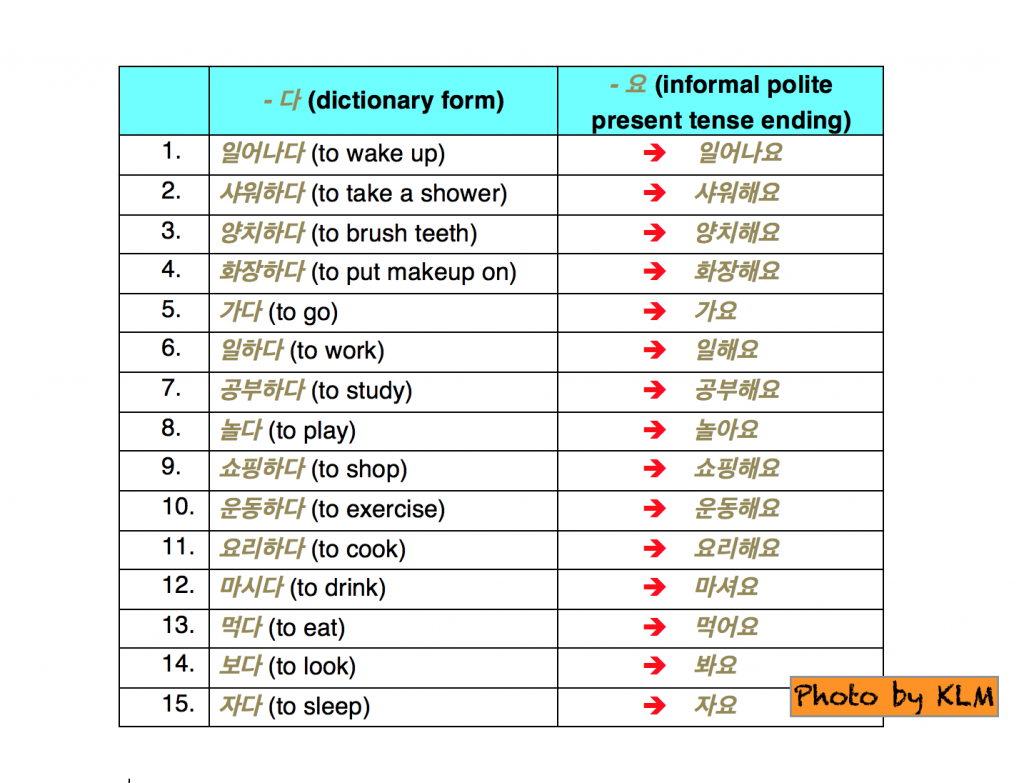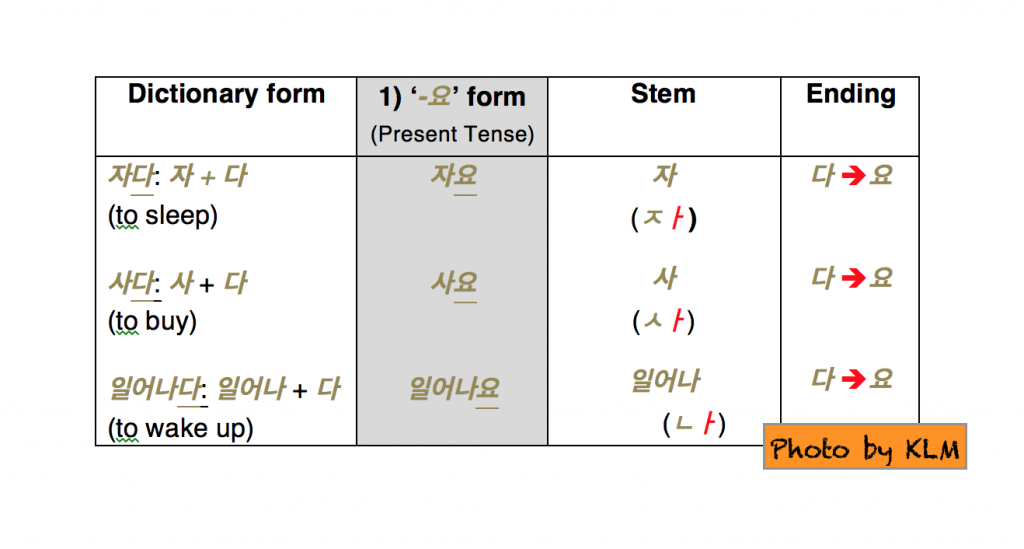Korean Verbs and Your Routine #1 Posted by Kyung-Hwa on Nov 8, 2017 in Grammar, Korean Language, Vocabulary
What do you do on a daily basis? We perform countless little actions throughout the day. Do you know how to describe your daily routine in Korean? This post will introduce to you a list of verbs that will be useful to describe your routine, and how to conjugate them in a present tense polite form, ‘-요’ style.
The following is the list of basic verb forms that you can use to describe your routine Korean. The ‘–다’ ending is the verb forms that you would find in the dictionary. In order for you to utilize these verbs, it is important to learn how to conjugate them depending on the speech patterns.
There are three basic rules to remember when you conjugate the regular verbs into the informal polite present tense ending, “– 요” style.
* Please keep in mind that these three rules apply to the only regular verbs, and the Korean language has irregular verbs.
- ‘–아요’ form
1) When the final vowel of the stem contains ‘아’ without the consonant after
⇒ Just add ‘–요’ to the stem part of a verb.
2) When the final vowel of the stem contains ‘아’ or ‘오’ with consonants at the end
⇒ Add ‘–아요’ to the stem part of the verb.
* In a conversation, 오+아 is often contracted to ‘와’

Photo by KLM
Korean verb conjugations might seem complicated to you at first, please remember practice makes perfect. The good news is that Korean adjectives follow the same rules when they conjugate. You can kill two birds with one stone. Once you master how to conjugate Korean verbs, you will also be able to conjugate adjectives in Korean.
I will introduce two more rules in the next article.
감사합니다! (Thank you!)

Build vocabulary, practice pronunciation, and more with Transparent Language Online. Available anytime, anywhere, on any device.






Comments:
주우종(Uchong Chu):
I do really appreciate that when I see your Korea language blog.
Way to go Kyung-Hwa.
Kyung-Hwa:
@주우종(Uchong Chu) 안녕하세요!
As always, I do appreciate your positive comment on my blog.
감사합니다 ^____^